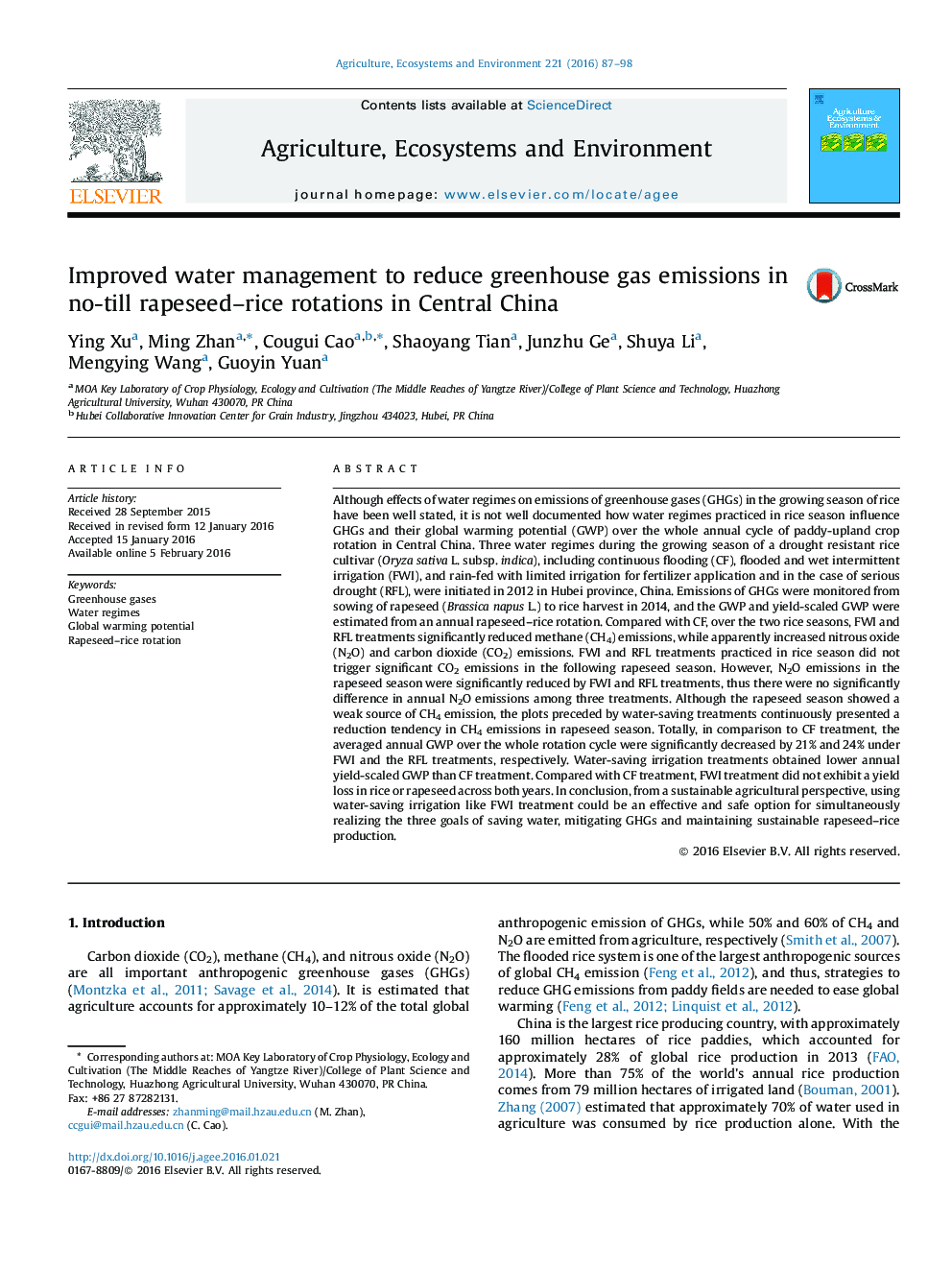| Article ID | Journal | Published Year | Pages | File Type |
|---|---|---|---|---|
| 8487440 | Agriculture, Ecosystems & Environment | 2016 | 12 Pages |
Abstract
Although effects of water regimes on emissions of greenhouse gases (GHGs) in the growing season of rice have been well stated, it is not well documented how water regimes practiced in rice season influence GHGs and their global warming potential (GWP) over the whole annual cycle of paddy-upland crop rotation in Central China. Three water regimes during the growing season of a drought resistant rice cultivar (Oryza sativa L. subsp. indica), including continuous flooding (CF), flooded and wet intermittent irrigation (FWI), and rain-fed with limited irrigation for fertilizer application and in the case of serious drought (RFL), were initiated in 2012 in Hubei province, China. Emissions of GHGs were monitored from sowing of rapeseed (Brassica napus L.) to rice harvest in 2014, and the GWP and yield-scaled GWP were estimated from an annual rapeseed-rice rotation. Compared with CF, over the two rice seasons, FWI and RFL treatments significantly reduced methane (CH4) emissions, while apparently increased nitrous oxide (N2O) and carbon dioxide (CO2) emissions. FWI and RFL treatments practiced in rice season did not trigger significant CO2 emissions in the following rapeseed season. However, N2O emissions in the rapeseed season were significantly reduced by FWI and RFL treatments, thus there were no significantly difference in annual N2O emissions among three treatments. Although the rapeseed season showed a weak source of CH4 emission, the plots preceded by water-saving treatments continuously presented a reduction tendency in CH4 emissions in rapeseed season. Totally, in comparison to CF treatment, the averaged annual GWP over the whole rotation cycle were significantly decreased by 21% and 24% under FWI and the RFL treatments, respectively. Water-saving irrigation treatments obtained lower annual yield-scaled GWP than CF treatment. Compared with CF treatment, FWI treatment did not exhibit a yield loss in rice or rapeseed across both years. In conclusion, from a sustainable agricultural perspective, using water-saving irrigation like FWI treatment could be an effective and safe option for simultaneously realizing the three goals of saving water, mitigating GHGs and maintaining sustainable rapeseed-rice production.
Related Topics
Life Sciences
Agricultural and Biological Sciences
Agronomy and Crop Science
Authors
Ying Xu, Ming Zhan, Cougui Cao, Shaoyang Tian, Junzhu Ge, Shuya Li, Mengying Wang, Guoyin Yuan,
